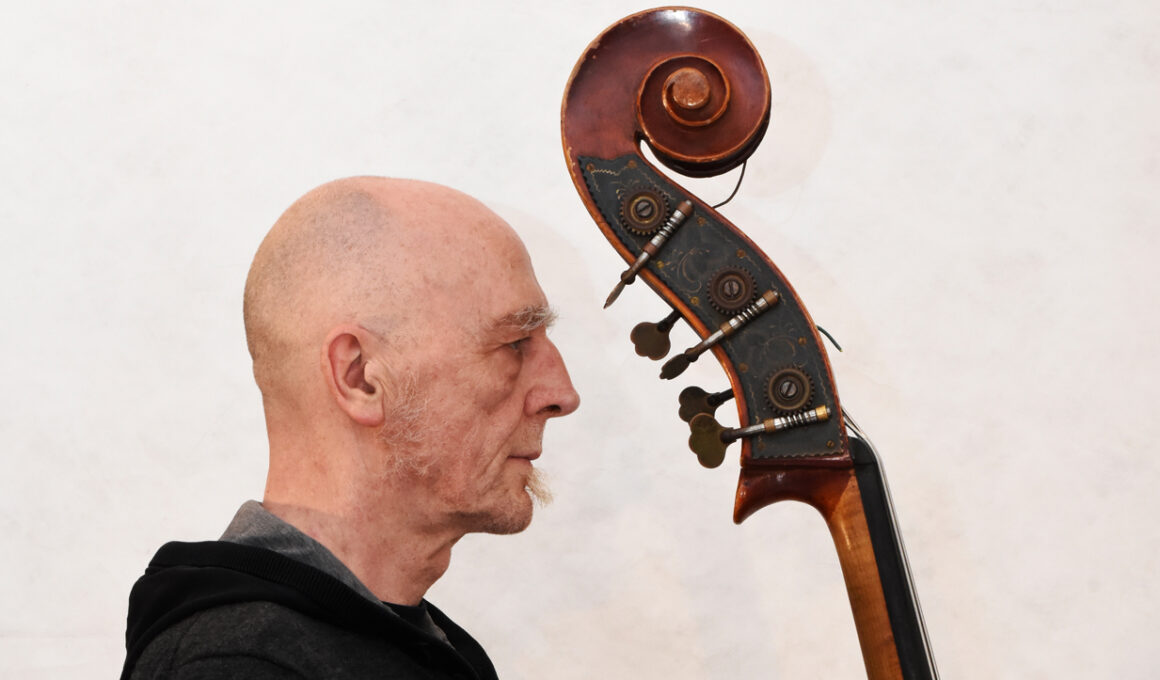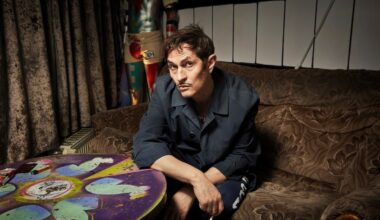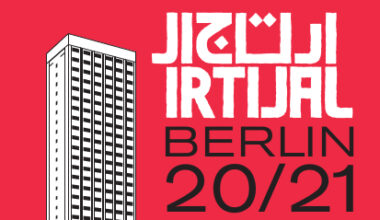Ulrich Phillipp (b.1956) has worked since the late seventies in the areas of improvised and experimental music as well as sound installations, audio art and performance; including collaborations with visual artists, dancers, and actors, playing in long time working groups and ad hoc situations.
Besides the double bass he also works with live-electronics, writes his own patches for live processing of sound in max/msp, which he uses concerts as well as for sound installations.
Co-founder and organizer of the Wiesbaden musicians´ collective cooperative new jazz (1979), ARTist collective (1983), HumaNoise congress – days of Improvised Music (1987).
He also teaches about sound and music to children and adults.
3 FACTS
1: “Isn´t assorting work?” asked Oedipa (Thomas Pynchon: The crying of lot 49.)
2: fragments is the only form i trust (Donald Barthelme)
3: Would not the dissolution of mental structures endanger the stability of the ruling order?
11 QUESTIONS
1. What is the biggest inspiration for your music?
Listening and connecting. Sharing.
2. How and when did you get into making music?
As i grew up in a musical family it was around me from the beginning.
3. What are 5 of your favorite albums of all time?
Sonatas and Interludes for prepared Piano – John Cage
Pearl – Janis Joplin
Mercator_Projected / Snafu – East of Eden
Crippled Symmetry / Why Patterns – Morton Feldman
A Love Supreme – John Coltrane
4. What do you associate with Berlin?
Endless traffic jams
5. What’s your favorite place in your town?
Our garden
6. If there was no music in the world, what would you do instead?
I´m sure something would come to me then
7. What was the last record/music you bought?
It´s long ago that i bought records, but i guess it was the three LP Set Ferdinand Kriwet – Hörtexte / Radiotexts (Edition RZ)
8. Who would you most like to collaborate with?
As an improvisor i welcome every musical encounter
9. What was your best gig (as performer or spectator)?
As a spectator: line describing a cone (Film by Anthony McCall performed by Metamkine)
10. How important is technology to your creative process?
For my electronic work, technology is of course very important. for the creative process technology is most interesting when it´s brought to it´s limits or even overburdened and so creating unexpected, stimulating and so inspiring results.
11. Do you have siblings, and how do they feel about your career/art?
I have two brothers (my sister already made the transition) They tune in my work complaisantly.
Photo:Susanne Kühnhold


